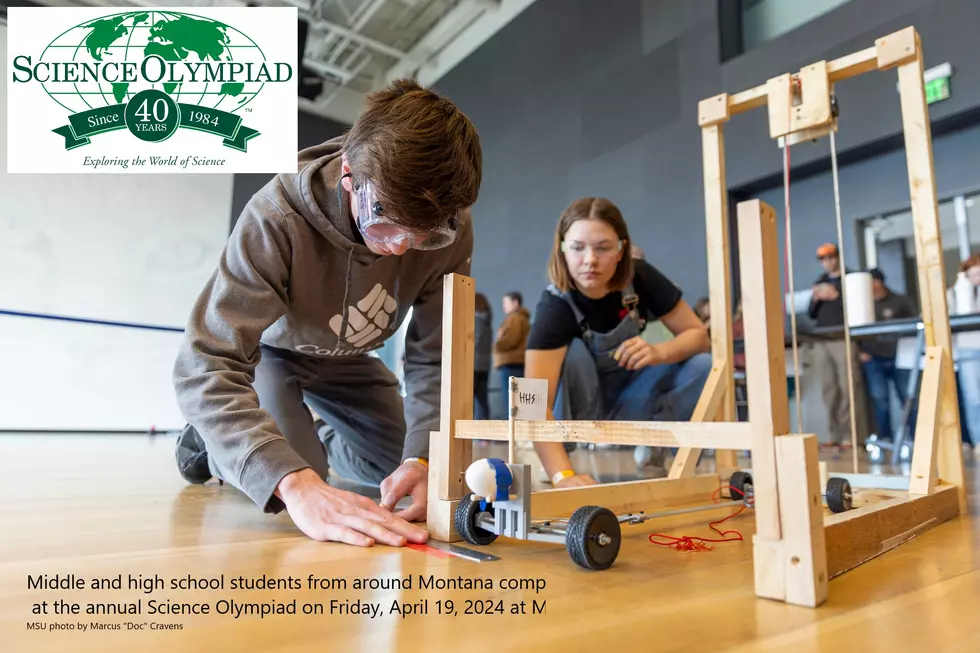
UM Mentor to Lily Gladstone Reflects on Oscar Nominee’s Historic Success
MISSOULA – Long before she was cast as a lead in the award-winning and Oscar-nominated film “Killers of the Flower Moon,” Lily Gladstone was cast in her very first University of Montana theatrical production during her junior year by Head of Acting and Musical Theatre Professor Bernadette Sweeney.
It was 2006, and although Dr. Sweeney couldn’t have predicted the dazzling heights her former student would ascend to, Gladstone’s success is far from a shock.
“In a way, it's not surprising because her talent was very evident from the beginning,” Sweeney said. “We’re just all so proud to see how her training here helped her on that path.”
Sweeney continued to be a mentor and friend to Gladstone after she graduated from UM’s School of Theatre and Dance in 2008, following her journey during moments of difficulty, when Gladstone considered a different career, to times of historic achievement. Gladstone recently became the first Indigenous person to win the Screen Actors Guild and Golden Globe’s best actress awards, among other award season accolades.
Sweeney takes pride in watching sparks of talent catch fire as young actors hone their artistry, noting the scores of gifted and hardworking actors who walked UM stages and found their own flavor of success. But it is a unique sweetness to witness a former student rise to the level of Academy Awards-nominated actress – a distinction largely considered the most prestigious in the filmmaking world.
“It is extraordinary to see Lily’s work take her all the way to such national and international recognition. And while that is not the case for every actor, I think what it showcases is how far the work can take you,” Sweeney said. “As an Indigenous performer, she has really blazed a trail and is bringing some very belated representation all the way to the Oscars.”
Gladstone was born on the Blackfeet Nation reservation in Browning and is up for the Oscars’ best actress award for her portrayal of Mollie Burkart, an Osage Nation woman. Gladstone is the first Native American nominated for the Oscars’ best actress category.
In anticipation of the Academy Awards on Sunday, Sweeney spoke with UM News Service about watching Gladstone grow into the lauded and trailblazing actor she is today, and what theater students can learn from her success.
The world’s eyes are on her via the big screen, but few actually know Lily outside the role of Mollie Burkhart and other characters she’s played. How would you describe Lily to those who don’t know her?
Lily is very talented and works hard to support that talent with her readiness, focus and ambition. But she is also fun! She can be silly and engaging in the rehearsal room and has an infectious laugh.
She is very supportive of the other actors and crew – this was evident when I directed her on the Montana Repertory Theatre’s 2014 national tour of “The Miracle Worker.” Lily had graduated by then, but she made every effort to support the other undergraduate actors who were on that tour. Having had the experience of going through our program herself, and with a few years out in the profession behind her, she was encouraging and a good role model and mentor for those younger students.
How did Lily’s talent stand out early on as a student at UM, and what steps did she take to help set herself apart in such a competitive industry?
I cast Lily in her first UM production, “Riders to the Sea,” in 2006 when I was visiting faculty from University College Cork. I came to UM to direct that production on the invitation of the School of Theatre and Dance, where we consider our productions to be coursework and our theaters to be working classrooms.
In that first production, it was evident to me that Lily was a talented young actor with a great work ethic. Her identity of course makes her who she is, and we had some fascinating discussions in rehearsal on “Riders to the Sea” as a postcolonial Irish text. Lily drew parallels and comparisons between its staging of ritual, poetry, language and the environment and her own Indigenous experience and culture. We had some intriguing conversations, which were all the more remarkable given how young she was at that time. I loved working with her and was anxious to do so again.
So much of acting is telling stories. What can be learned from Lily telling such rich, nuanced stories from an Indigenous perspective?
I think Lily’s success proves that as artists, it is important to remember who we are and to take pride in our origins and cultures. Lily is paving the way for other Indigenous artists who have been marginalized for far too long. She also reminds us that the work of the actor involves inhabiting many different roles as an act of imagination and empathy, and that there is a wide range of possibility available to every actor.
Lily’s success is a powerful example of the power of performance and how crucial storytelling is to us, perhaps now more than ever. We need art forms that can question and console, can educate and entertain. We need stories that matter, and we need storytellers like Lily.
It must feel rewarding watching a former student be celebrated for her work and enjoy such success. What are your reflections on teaching an Oscar nominee?
It’s remarkable and surreal! But it also feels inevitable – Lily was a standout from the start, and anyone who works with her wants to work with her again. She recently mentioned that she still uses a voice warm up that I taught her years ago – that was a lovely example of how her training is still useful to her, on film sets, every day she goes to work.
Lily’s success also is an example of how resilience can meet opportunity. Lily has stayed true to herself and has advocated and continues to advocate for herself and for others Indigenous actors and artists. She is using her platform to make a difference. All of us at the School of Theatre and Dance are very proud of her achievements and her advocacy.
What unique opportunities or resources does UM offer to students with dreams of becoming actors or other roles within the industry?
The School of Theatre and Dance offers young actors comprehensive training coupled with live theater experiences as part of our production season. Our actors and musical theater performers take classes in introductory to advanced acting, dance, voice, movement and combat. They also take classes in theater history, directing, script analysis and dramaturgy.
To help them become fuller theater artists, they can also take classes in stagecraft, lighting costume or scenic design, and stage-management, and must take some introductory classes in design and technology. Lily herself spoke to how working on a production crew as a student helped her to form a greater understanding of how a production works overall, and a greater appreciation of the work put in by everyone in production.
What advice might you offer to UM students hoping for a career like Lily’s?
Lily’s success is well-deserved and a perfect example of how a combination of talent, hard work and integrity can take you far, in any profession. My advice to students is to maximize your opportunities while at UM, take every class you can, satisfy your curiosity across disciplines – if you want to take a class in film editing or creative writing, do it now!
As a student, you are in a very special place in your life where you can put your learning first and develop your own pathway through your degree and electives. Make the most of every day, sleep and eat well, do your research, and take care of yourself and your ensemble – rise up to meet the work and it will serve you long after you graduate.
- by Abigail Lauten-Scrivner, UM News Service -
More From KSEN AM 1150









